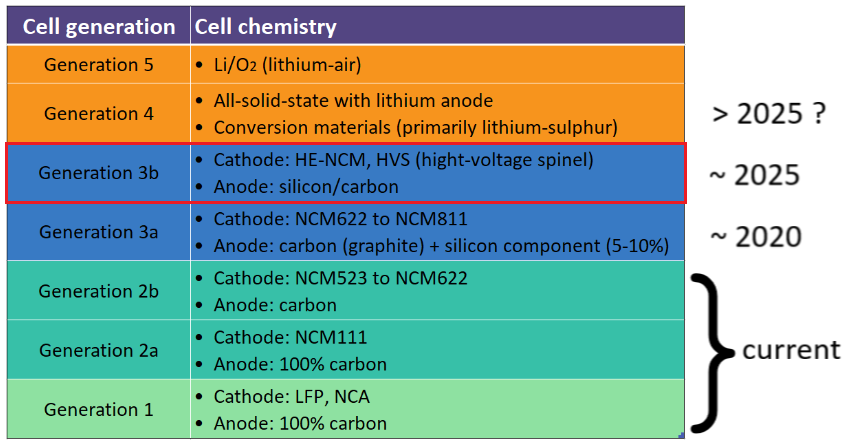Gen3Bat Cluster
Consequently, the European Union is focusing substantial research efforts on battery technology. Under the EU Research and Innovation programme Horizon 2020, numerous calls for proposals focus on different aspects of battery research. One of these is the LC-BAT-5-2019 call, which addresses
- Research in cell chemistry, cell morphology and cell architecture
- Development of smart micro-sensors at cell and/or module level
- Advanced manufacturing methods and equipment.
The cell chemistry focuses on so-called generation 3b materials according to the SET Plan. These are high-voltage spinels and high-energy NMC on the cathode side, with carbon and silicon on the anode side.
Besides 3beLiEVe, the following projects have similar objectives and have been funded under the LC-BAT-5-2019 call:
We have joined forces as the Gen3Bat Cluster (formerly the LC-Bat-5 cluster) to take advantage of synergies in communication, dissemination and technical matters. Together we are working on next-generation lithium-ion batteries made in Europe.
For key updates of the cluster, please subscribe to our newsletter.

